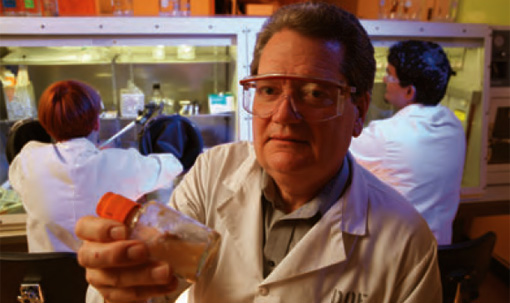Bioconversion Science & Technology
The Bioconversion Science and Technology group performs multidisciplinary R&D for the Department of Energy's (DOE) relevant applications of bioprocessing, especially with biomass. Bioprocessing combines the disciplines of chemical engineering, microbiology and biochemistry. The Group 's primary role is investigation of the use of microorganism, microbial consortia and microbial enzymes in bioenergy research. The group in involved in multiple project both within the DOE Office of Science-funded ORNL-led BioEnergy Science Center. Recent research has focused on biomass conversion by a thermophilic bacterium Clostridium thermocellum and its ability to convert cellulose directly to ethanol and other products during fermentation. Studies have investigated the details of the numerous enzymes involved and genes expressed after exposure to a variety of types of biomass. Additionally, research within the Group has thrust ORNL into a leadership position regarding the use of microbial fuel cells for waste and process water upgrading while producing electricity. The Group Leader, Jonathan Mielenz also is a co-chairman of the long running Symposium on Biotechnology for Fuels and Chemicals in its 32nd year in 2010 in Clearwater Beach Florida in late April (http://www.simhq.org/). The Group actively support educational summer programs and typically hosts one to two college student and/or science teachers. We collaborate with a variety of industries and universities and encourage contacts seeking joint project work.
This group's research interests can be grouped into four areas:
- Production of Fuels and Chemicals from Biomass
- Fundamental Research on Biological Process for Bioenergy Production
- Microbial Fuel Cell Development and Demonstration
- Microbial Environmental Remediation
Our capabilities can be grouped as Microbial Fermentation, Biomass Conversion, Biochemistry, and Applied Molecular Biology for Microbial strain and enzyme development. Members of the Group are experts in novel reactors, separations, modeling, and system integration using chemical engineering principles.


